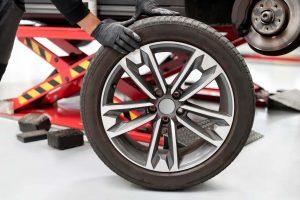Whether it be the long hours behind the wheel, the weather conditions, or the state of the road, long distance road trips are always a challenge. For that reason, we have prepared a checklist with recommendations for drivers.
Prepare Yourself for Your Next Road Trip
Get your pad and pen ready or bookmark this article as you’ll want to remember these tips.
1. Prep Your Car
The first thing you want to do is make sure your vehicle is in perfect condition for a safe ride. This is something you should do a week or two before your road trip.
Make sure each and every one of the systems of your vehicle work correctly. If not, take the corresponding measures or simply take your car to the garage.
Here is what you should look out for:
– Tyre wear/pressure: You might have heard that tyres constitute a key element when it comes to the vehicle’s safety. That’s why you should check the tyre pressure and tread depth.
– Oil level: Make sure the oil level is between the minimum and maximum markers, otherwise your car might break down during your trip.
– Coolant: Coolant removes excessive heat from your engine. So, always check your coolant level, or ask a technician to do it for you.
– Battery: Make sure the terminals are clean and check that the engine starts correctly.
– Lights: Make sure all your vehicle’s lights work correctly.
– Brake fluid: Check the level and if it is low, top it up.
– Fuel: The last thing you need to do is checking the fuel tank. Just make sure there’s enough fuel to complete the trip, and you´ll be good to go.
2. Bring All the Necessary Documents with You
These may include:
– Driving licence
– Log Book
– Car insurance details
– Vehicle inspection certificate
– It is also advisable to note down roadside assistance and emergency numbers.
3. GPS Navigation Device
As well as giving you directions, it will remind you of the speed limit and help you find service stations, as well as rest areas.
Anyway, keep an old-school map at hand just in case, and if something seems off, always trust your own judgement over the GPS instructions.
4. Some Cash and Loose Change
During long road trips, it is important to keep a few coins and some cash available to pay for tolls or parking charges or maybe you just need it for that snack to recharge your energy levels.
5. First-Aid Kit
You should always keep a first-aid kit that includes plasters, bandages, scissors, cotton, an antiseptic solution, and a sterile dressing, in case something happens.
6. Food and Drinks
Staying hydrated is always important, but when you are driving, it is vital, especially when it is hot especially in a humid country like ours.
That’s why you should always carry enough water and food, and make as many stops as you need to get more.
Additionally, you shouldn’t drive for intervals longer than 3 hours, so every time you stop to stretch your legs and catch some fresh air, you might as well take the opportunity to buy some snacks and drinks.
Also, you should not drive for more than 9 hours a day, excluding breaks.
7. Comfortable Clothes
Drivers shouldn´t wear bulky clothes inside the vehicle, as they can make the ride particularly uncomfortable. Also, high temperatures could cause sleepiness, so it is best to wear lighter clothes.
Remember that the perfect temperature inside the car should be between 21-23°C.
For further advice on road trips, and the latest offers on tyres and car accessories, visit the Tayaria website or just ask one of our experts from your local kedai Tayaria.
We are always happy to help.







